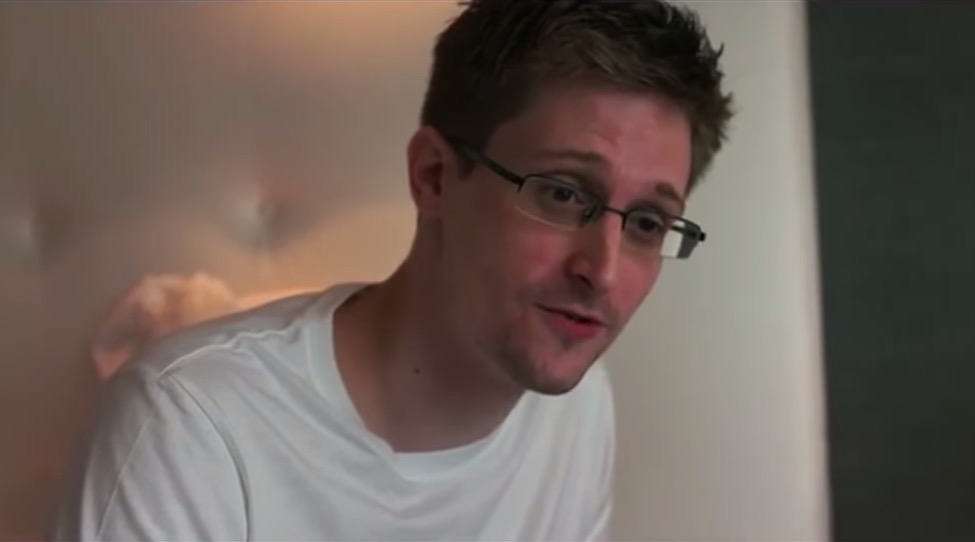It is official, Laura Poitras‘ Citizenfour has won the Oscar award for “Best Documentary” and now has debuted on HBO. I must admit, as a junkie of these types of issues, I made sure I had the time free to watch the two hour documentary weeks in advance. I cannot possibly understate how well spent those two hours were. However, my excitement aside, here is my review of the new whistleblower exposé.
The film begins as an abstract set of scenes layered with voiceover, done by Laura Poitras herself, reading the first email she had received from Snowden under the pseudonym “Citizen Four.” The email not only offers the viewer an insight into what we hope to learn about what our governments are capable of, but also sets the stage for the kind of chilling yet also (rightfully) paranoid journey into the story of a lone whistleblower.
From now, know that every border you cross, every purchase you make, every call you dial, every cell phone tower you pass, friend you keep, article you write, site you visit, subject line you type, and packet you route, is in the hands of a system whose reach is unlimited but whose safeguards are not.
– Email from Edward Snowden, Citizenfour
Laura Poitras illustrates a brief backstory which sets the stage for the now infamous leaks by presenting to the viewer the cases and congressional hearings which implicate NSA officials for lying about the expansive methods used by the agency.
As the officials rattle off question after question to the NSA officials regarding supposed surveillance techniques, each “no” given by officials is followed up with one thought in my head per response: “Lie. Lie. Lie.”
Poitras does her due diligence by reminding her viewers this way that what is being done is wrong and illegal, but with what repercussions? The brilliance is in her method of being able to show this without uttering one word of narration. This method is used throughout the documentary with flawless execution as she leads the viewer further down the rabbit hole of the American surveillance apparatus.
What is truly surprising and humbling is the personality of the whistleblower himself, Edward Snowden. Throughout the film, Snowden routinely makes clear to Poitras, Glenn Greenwald, and the rest of the Guardian crew of his goal to make these revelations about the issues, not about himself as a person.
Citizenfour allows the viewer to jump into the early days of the NSA leaks and view Snowden as a human, rather than the media talking point than the average American is exposed to. I could feel each emotion that Snowden conveyed as each event took place. You could feel his fear when expressed, his anxiousness, and his desire to make the truth known.
His demeanor resembles one who has accepted the fact that his life will be changed forever by the actions that he will take.
It is true that men fear the unknown and this is a prominent theme throughout the film as it progresses through Snowden’s time in Hong Kong during the initial leaks, to his run-ins with a revoked passport, and the uncertainty of his fate as he seeks political asylum in Russia. This fear motivates Snowden’s every action and step that he takes to prevent the truth from being silenced.
Poitras has the ability to flawlessly convey the monstrosity that are the NSA spying programs, and explain them in a way that is relatively simple for the average viewer to understand. The explained concept of using metadata to draw up profiles of American citizens leaves little wiggle room for apologists to defend the invasions of privacy that have occurred.
Personally, I am not one for paying attention to which movies win what awards, however in the case of Citizenfour, I believe the academy had their ducks in a row. This film is apparently the third part or a series of films by Poitras which focus around America’s war on terror following 9/11 and one thing is for certain: I definitely plan on following up this film by seeking out her previous documentaries which led up to this.
I give Citizenfour two big thumbs up!



